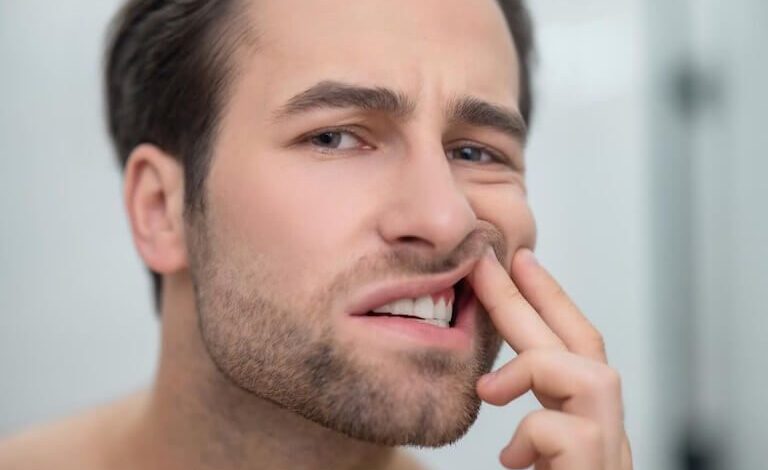Vape Side Effects On Skin

Vaping has become increasingly popular in recent years as a perceived safer alternative to smoking traditional cigarettes. However, the long-term health effects of vaping are not yet fully understood and there is growing concern about its potential impact on skin health.
While some may view this as an insignificant issue, research suggests that vaping can have negative consequences for the skin, including dryness, inflammation, irritation, and premature aging.
Many people who vape are unaware of the potential risks associated with this practice and how it may affect their skin. As such, it is important to gain a better understanding of these risks so that users can make informed decisions about their health and lifestyle choices.
By exploring the available evidence on vape side effects on skin, we can gain insight into the potential impacts of this habit on our bodies and take steps to minimize its negative effects.
Dryness of the Skin
The use of vape products has been linked to an increased risk of skin dryness, which can cause discomfort and exacerbate existing skin conditions.
This is because vaping can reduce the production of sebum, a natural oil that helps to moisturize the skin.
The lack of moisture in the skin can lead to cracking, flaking, and itching.
To combat this side effect, it’s important to incorporate effective moisturizing techniques into your daily routine such as using a gentle cleanser and applying a hydrating moisturizer.
See also https://izzihub.com/reasons-to-switch-to-vape/
Additionally, natural remedies such as coconut oil or aloe vera gel may also help soothe and nourish dry skin caused by vaping.
By taking these preventive measures, individuals who choose to use vape products can minimize their risk for developing uncomfortable symptoms associated with dry skin.
Inflammation and Irritation
Inflammation and irritation can be likened to a wildfire that ravages the skin, leaving it red, swollen, and painful. Vaping has been linked to these adverse effects on the skin due to the chemicals present in e-cigarette aerosol.
These chemicals can strip away essential moisture from the skin’s surface layer, leading to dryness and inflammation. Moreover, vaping also triggers an immune response in the body that leads to skin irritation.
The best way to protect your skin from such damage is by practicing proper hydration and using skincare products that are specifically designed for sensitive or inflamed skin. Staying hydrated helps maintain healthy levels of moisture in the skin while topical treatments like anti-inflammatory creams and lotions soothe irritated areas.
Ultimately, quitting vaping altogether is the most effective way of preventing any further harm and promoting overall health and wellness.
Effects on Skin Aging
One potential consequence of e-cigarette use is the acceleration of skin aging, as it has been linked to the breakdown of collagen and elastin in the skin. Collagen production is essential for maintaining skin elasticity, but vaping can harm this process.
The chemicals found in e-cigarettes can cause oxidative stress, leading to a decrease in collagen synthesis and an increase in its degradation. Moreover, UV damage can exacerbate wrinkle formation and other signs of aging, making it even more crucial to preserve healthy levels of collagen.
While research on the long-term effects of vaping on skin health is still ongoing, these findings suggest that using e-cigarettes may have adverse consequences for those seeking to maintain youthful-looking skin.
Minimizing Risks
To mitigate potential harm from e-cigarette use, it is crucial to adopt measures that reduce oxidative stress and preserve collagen synthesis for healthy skin integrity.
One way to minimize risks is by implementing a proper skincare routine that includes regular cleansing, moisturizing, and sun protection.
See also https://izzihub.com/types-of-vapes/
It is also important to identify any allergies or sensitivities you may have towards certain ingredients commonly found in skincare products, such as fragrances or preservatives.
Consulting with a dermatologist can help determine the best course of action to maintain healthy skin while using e-cigarettes.
Additionally, avoiding smoking altogether and maintaining a healthy lifestyle with a balanced diet and regular exercise can further support skin health and reduce the risk of premature aging caused by oxidative stress.
By taking these steps, individuals can continue enjoying the benefits of vaping without compromising their skin’s health and appearance.
Conclusion
Vaping has become increasingly popular, but it is not without its drawbacks. The effects of vaping on the skin have been a topic of discussion among researchers and medical professionals. This article explored the various side effects that vaping can have on the skin, including dryness, inflammation, irritation, and premature aging.
One common side effect of vaping is dryness of the skin. This occurs because e-cigarettes contain chemicals that can dehydrate the skin.
Inflammation and irritation are also common side effects that occur as a result of exposure to chemicals in e-cigarettes. These side effects can cause discomfort and redness in affected areas.
Another significant concern is how vaping affects skin aging. Chemicals found in e-cigarettes can accelerate the aging process by breaking down collagen and elastin fibers in the skin.
It is essential to note that while these effects may be concerning, there are ways to minimize risks associated with vaping on the skin.
In conclusion, while vaping has many potential health benefits over traditional smoking methods, it still poses risks to users’ overall health and well-being. Vaping’s impact on the skin is just one aspect of this issue that requires further research and understanding by both consumers and healthcare providers alike.
As we continue to learn more about this topic, it is important for individuals who choose to vape to take necessary precautions to protect their health and minimize risks associated with this habit. Remember: prevention is better than cure!
